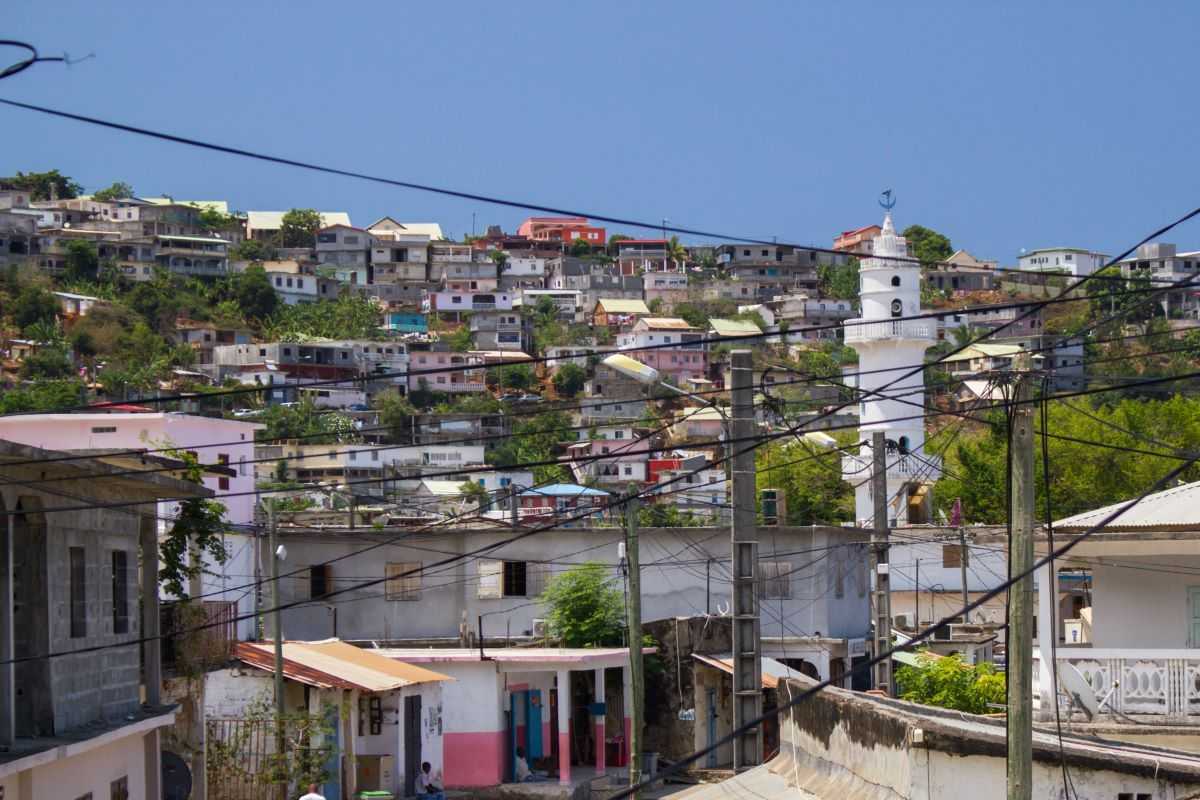Home>Reconstruction of Mayotte, transition and housing: two collective projects inherited from the AESOP Congress

16.05.2025
Reconstruction of Mayotte, transition and housing: two collective projects inherited from the AESOP Congress
From the 8th to the 12th of July, 2024, the Center of European Studies and Comparative Politics hosted at Sciences Po, with the Urban School, the 36th AESOP Congress (AESOP is the Association of European Schools of Planning). The success of this event, which attracted 1,200 people and is the largest scientific event ever organized at Sciences Po, allows us to support two collective projects at the crossroads of territorial, environmental, and social issues, led by students from the Urban School, with supervision provided in part by researchers from the CEE, and the support of AESOP.
Contributing to the reconstruction of Mayotte after cyclone Chido
The organizers of the 2024 AESOP Congress (AESOP, CEE and Sciences Po Urban School) are engaging to contribute, in an indirect manner, to Mayotte reconstruction efforts after cyclone Chido devastated the island in December 2024.
The reconstruction of Mayotte must be an opportunity to rethink models of local development by integrating principles of durability, resilience, and social equality.
The challenges facing Mayotte—precarious housing, exposure to natural hazards, management of limited resources, and sometimes fragmented/unstable governance—are echoed in other regions of the world, particularly in Latin America and Southeast Asia. Four students from the Master's program in Governing the Large Metropolis, supervised by urban architect Amalle Gualleze, and in collaboration with local stakeholders, will therefore propose a comparative analysis in order to identify relevant and useful courses of action for those responsible for reconstruction. They will benefit from the occasional support of researchers, notably from the CEE.
Ecological transition and housing: A comparative analysis of Paris, Milan and London
As part of the European ReHousIn project (whose French team is led by Marco Cremaschi at the CEE), this collective project of the Master Governing Ecological Transition in Cities at the Urban School aims to map and compare ecological transition initiatives in Paris, Milan and London, by evaluating their impact on housing inequalities. Initiatives promoting the transition (energy renovation, land redevelopment, nature-based solutions) can indeed infl uence the quality of housing (energy performance, etc.), but also its costs and the segmentation of housing supply (share of social housing, for example). The project examines potential conflicts between environmental objectives and social equity in housing and analyzes trade-offs or synergies in public policy.
The students, supervised by Federica Rotondo, a CEE post-doctoral researcher, will conduct field visits and meet with stakeholders to gather their perspectives on the social implications of ecological transition policies. The project will result in the production of maps, reports, and comparative analyses, shedding light on the challenges of this ecological transition and their social implications, to inform academic and policy debates at both a national and international level.
To come full circle, the students successfully submitted a paper for the AESOP 2025 conference, which is being held in Istanbul in July: they will present their main results there.
Translation from French to English by Hannah Ashburn
(credits: Shutterstock / Charles-Henry Thoquenne)